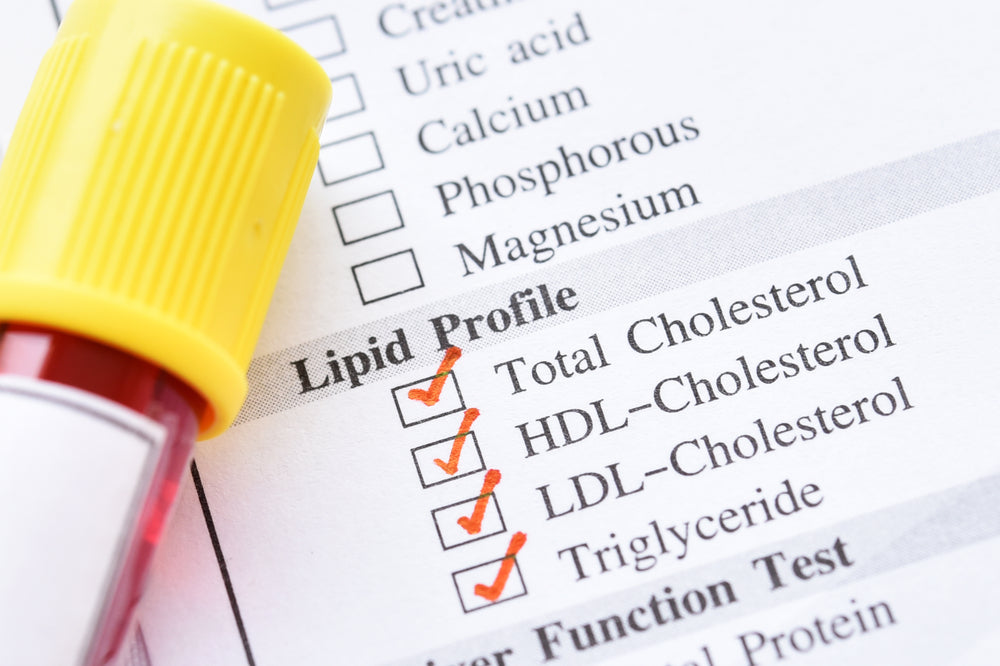Having a cholesterol blood test
Maintaining good cardiovascular health is crucial for overall well-being, and one essential aspect of this is monitoring cholesterol levels regularly. A cholesterol test, also known as a lipid profile, provides valuable insights into your heart health. Proper preparation before the test can ensure accurate results, allowing you and your doctor or other healthcare provider such as your occupational health team, to make informed decisions about your cardiovascular health.
Here's a comprehensive guide on how to prepare for a cholesterol test:
1. Schedule the cholesterol blood test
Contact your GP or other healthcare provider to schedule the cholesterol test. They will advise you on whether fasting is necessary before the test and any other specific instructions you need to follow. Record the date of the test on a calendar or on your phone so you won't forget.
2. Understand fasting requirements
If fasting is required for your cholesterol test, your doctor, clinic or nurse will typically recommend fasting for 9 to 12 hours before the test. During this fasting period, avoid consuming any food or beverages, except for water. Fasting helps obtain accurate measurements of triglycerides and ensures consistent lipid profiles.
3. Stay hydrated
While fasting, it's essential to stay hydrated by drinking water. Adequate hydration helps maintain blood flow and makes it easier for the healthcare provider to draw blood for the test. Dehydration can also adversely affect the cholesterol levels in the blood making the levels appear higher than they actually are.
4. Avoid certain foods and beverages
In the hours leading up to the cholesterol test, refrain from consuming foods high in fats, such as fried foods, fatty meats, and full-fat dairy products. Also, avoid alcoholic beverages, as they can affect the lipid levels in your blood.
5. Continue taking medications
If you are taking any prescription medications, continue to take them as prescribed unless instructed otherwise by your healthcare provider. Certain medications may affect cholesterol levels, but it's essential to follow your doctor's guidance regarding medication use before the test.
6. Communicate with the person performing the blood test
Inform the doctor, nurse or phlebotomist who is taking the blood sample about any medical conditions you have, as well as any medications or supplements you are taking. They can provide guidance on how these factors may impact the cholesterol test results. If you are prone to fainting at the sight of blood, it is important to let the person taking the blood sample know, so that they are aware and may take precautions to minimise the risks of your passing out.
7. Relax and try to stay calm
On the day of the test, try to relax and stay calm. Stress and anxiety can affect blood pressure and potentially influence cholesterol levels. Take deep breaths and focus on staying positive. Listen and follow the instructions that the person taking the blood gives you. If you are upset by the sight of a needle or blood it is usually best to look away while they are doing the blood test, or close your eyes. If you feel at all faint let the staff know so that they can lie you flat.
8. Follow post-test instructions
After the cholesterol test, your healthcare provider may provide specific instructions based on the results. Follow any recommendations regarding lifestyle changes, medication adjustments, or follow-up appointments.
Regular cholesterol testing is a useful tool for maintaining heart health and preventing cardiovascular diseases. By following these preparation tips and working closely with your healthcare team, you can ensure accurate test results and take proactive steps towards a healthier heart. Remember, knowledge is power when it comes to managing your cardiovascular health, so stay informed and prioritise regular cholesterol screenings.
If you would like to monitor your cholesterol at home, we have a range of home cholesterol test kits and meters that are a useful tool to those who wish to proactively manage cholesterol levels and their health.

